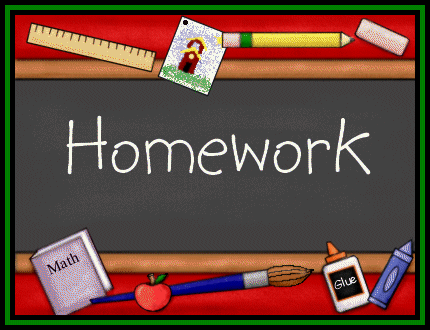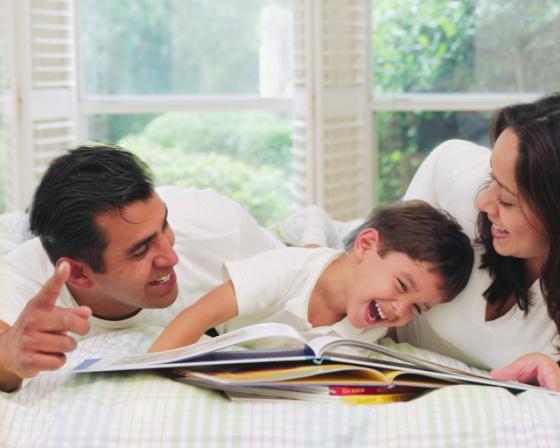Parents Association
About Us
The principal and staff really appreciate the great work carried out by our Parents Association and the contribution that they make to our school community. The Parents Association create a very strong link between home and school. A committee is elected each September and the Parents Association always welcome new members who would like to join.
The Parents Association have been a valuable asset in organising:
- Green Schools related days of action
- Sports for All Days
- Communion Breakfast
- Fundraising
The school would also like to thank all parents who contribute towards fundraising activities throughout the school year. All parents are automatically members of the Parent's Association. The current committee are:
Chairperson: Sinead Tuohy
Secretary: Beth Hickey
Treasurer: Kate Quinlan
Role
- To represent the views of the parents.
- To liaise with the school in areas of development of the school.
- To assist with the provision of teaching aids through fundraising etc.
- To liaise with other parents.
- To promote the school.
Committee
The Parents' Association committee shall be composed of elected members (to include an elected Chairperson, Secretary & Treasurer). A new committee will be elected bi-annually with at least 1 existing member remaining to ensure continuity. The officers shall remain in office for a maximum of 3 successive years. A quorum of 4 shall be required for all committee meetings. Numbers on the committee could be raised depending on the needs of the school.
Meetings
The Annual General Meeting (A.G.M.) shall be held in October of each year. Ordinary meetings shall be held as appropriate (approximately 1 every 2 months).
The Chairperson shall chair all meetings and shall deputise another member in his/ her absence with at least one weeks notice via text message, phone call or face to face meetings. He/ she will co- ordinate events such as guest speakers, fundraising etc. He/ she will liaise with the principal in the event of her absence from meetings/ as a result of decicions made at meetings.
The Secretary shall be responsible for all correspondence (including circulating the agenda), minute all meetings and provide a copy of the minutes to the principal. He/ she will organise the venue for meetings, organise locking/ un- locking of the venue, ensure adequate light, heating and refreshments (if so required). He/ she will organise payment for the venue.
The Treasurer shall be responsible for collecting and lodging of funds/ accounts as well as presenting same at meetings. All expenditure by or on behalf of the Parents' Association must be approved by the Board. Transactions must be authorized by 2 of 3 nominated signatories. A total account of the P.A.'s income and expenditure shall be prepared at the end of each year and shall be properly audited. She/ he is also required to present a record of accounts to the Board of Management every year (or upon request).
All parents/ guardians of pupils in the school should be encouraged to attend meetings to foster co-operation and inclusion. Each question should be decided by a majority vote. The P.A. shall have due regard to the C.P.M.S.A. Board of Management handbook 2007: 56 which states "fundraising in the name of the school must have the prior consent of the Board of Management. A Parents' Association should consult with the Board about fundraising for the school or school projects. The approval of the board is needed before these funds are raised. The expenditure of these funds is by the board of management, in consultation with the Parents' Association. All monies raised or generated for an agreed project for the school should be lodged into the school account".
Finally, the parents Association should not be seen as a complaints board. Individuals should be encouraged to contact the teacher/ principal directly to ensure proper procedures are followed. A Parents' Guide to the BOM http://www.npc.ie/attachments/88f10722-40c1-4945-824f-59e8e22be306.pdf
Tips For Parents

Children are more successful in school when parents take an active interest in their homework - it shows children that what they do is important. Homework shouldn't mean spending hours at a desk. Parents can be supportive by demonstrating study and organisation skills, or explaining a tricky problem. Here are some tips to guide the way:
- Know the teachers - and what they're looking for. Attend school events, such as parent-teacher meetings, to meet your child's teachers. Ask about their homework policies and how you should be involved.
- Set up a homework-friendly area. Make sure children have a well-lit place to complete homework. Keep supplies - paper, pencils, glue, scissors - within reach.
- Schedule a regular study time. Some children work best in the afternoon, following a snack and play period; others may prefer to wait until after dinner.
- Keep distractions to a minimum. This means no TV, loud music, or phone calls.
- Homework usually includes reading, oral and written work. Oral work has equal importance to written work. Listen to your child reading and reciting his/her comhrá, ask them tables, spellings, poems etc.
- Make sure children do their own work. They won't learn if they don't think for themselves and make their own mistakes. Parents can make suggestions and help with directions. But it's a child's job to do the learning.
- Be a motivator and monitor. Ask about assignments, quizzes, and tests. Give encouragement, check completed homework, and make yourself available for questions and concerns.
- Set a good example. Do your children ever see you working out a problem or reading a book? Children are more likely to follow their parents' examples than their advice.
- Praise their work and efforts. Post a test or art project on the refrigerator. Mention academic achievements to relatives.
- If there are continuing problems with homework, get help. Talk about it with your child's teacher. Some children have trouble seeing the board and may need glasses; others might need an evaluation for a learning problem or attention disorder.
- Check that all homework is completed by checking the homework journal.
- Encourage your child to attempt a task even if he believes it is difficult.
- If, for any reason homework cannot be completed, let the teacher know why by writing a note in the homework journal.
- Please sign homework journal each night.
- Encourage your child to do extra reading each night after his/her homework, reading for pleasure (e.g. read library books).
Reading at Home

Reading is an essential skill for life. Your child should have the opportunity to read daily.
Maths at Home

Numeracy is the ability to understand and work with numbers. Working with numbers is an essential skill for life.
- Tables should be practised every day until they are known 'by heart.'
- If you're unsure of how certain Maths skills are thought in class, please contact your child's teacher as some methods have changed from what you'd remember from your own school days.
- Sums with addition, subtraction, division and multiplication can be practised.
- Decimal numbers can be explained using money (e.g. €259.35, €66.78, €1.29, €0.78, €0.02).
- Fractions can be explained using pizza slices as an example.
- Shape and Space
- Angles - different types of angles can be drawn (acute, right, obtuse, reflex).
- Look for shapes in the environment (e.g. 2-D shapes squares, circles, rectangles, triangles and 3-D shapes cubes, pyramids, spheres etc.)
- Look at maps and plans, draw a simple plan or map.
- Use a measuring jug to measure different amounts of water. Measure how much water is held by different cups and glasses. Learn how much liquid is held by different household tubes, cartons, bottles, jars etc. (e.g. 100ml, 330ml, 500ml, 2L, 5L,10L)
- Learn about Weight (Kg. g.) and Length (Km, m, cm ), look for examples in the home.
- Learn the time using an analogue watch / clock.
- Look out for different types of graphs in newspapers and online. What do they show?
School Uniform
The school uniform consists of
- Grey jumper/cardigan
- Grey pants/skirt
- Blue/white shirt
- Blue and grey tie
- Shoes/runners
The school tracksuit consists of
- Blue tracksuit top with school logo
- Blue tracksuit bottoms
- Polo shirt
- Runners
Uniforms and tracksuits can be purchased in Prego Menswear, located in the Shannon Town Centre.
The school tracksuit should always be worn on designated PE day and on one other day at the class teachers' discretion.
It would be a good idea if you could label all your children's clothes as they can get mixed up with other children in their class very easily.
If any clothes are found around the school, they are kept in the Lost/Found area of the school.
School Calendar 2024/2025
School reopens for all pupils on Wednesday 28th August 2024
MID TERM
School closed from Monday 28th October to Friday 1st November 2024
CHRISTMAS HOLIDAYS
School finishes on Friday 20th December & reopens on Monday 6th January 2025
ST. BRIGID'S DAY
School will be closed on bank holiday Monday 3rd February 2025
MID TERM
School will be closed on Thursday 20th & Friday 21st February 2025
ST. PATRICK'S DAY
School will be closed on Monday 17th of March 2025
EASTER HOLIDAYS
School finishes on Friday 11th April & reopens on Monday 28th April 2025
MAY BANK HOLIDAY
School closed on Monday 5th May 2025
JUNE BANK HOLIDAY
School closed on Monday 2nd June 2025
SUMMER HOLIDAYS
School will finish on Friday 20th June 2025
*Please note May is the month designated for compulsory testing in schools for 1st to 6th classes. It is advisable for students, failing illness, to be at school during this time.
**Also please note that once a student misses in excess of 20 days, regardless of reason, we are obliged to report same to TUSLA, the Child & Family Agency. It is therefore essential that all absences are explained by a written note or phone call. Thank you.
Help your child deal with a loss
The following handouts are being made available to you
- Grief After A Tragic Death
- Self-Care for Parents-Carers-Teachers
- Quick Stress Management Techniques
- Childrens Understanding and Reaction to Death by Age
- Stages of Grief
- How to Cope When Something Terrible Happens
- Reactions to a Critical Incident
- Ways to Help your Child Through this Difficult Time
- Frequently Asked Questions by Parents

